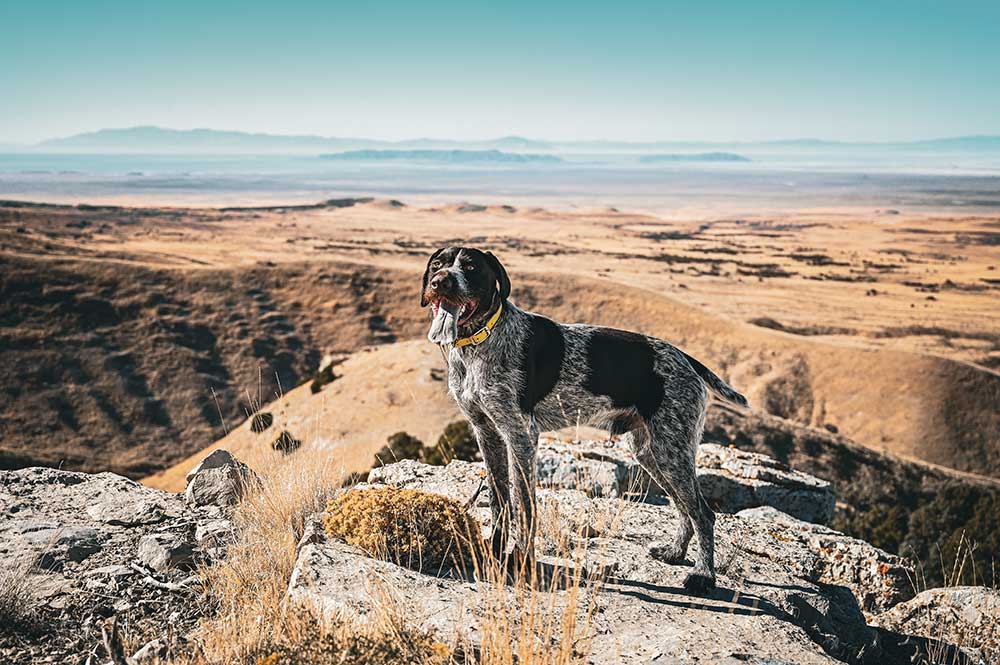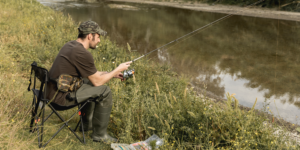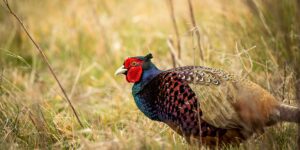There’s no question that private hunting land is appealing, but it usually comes with added costs and headaches.
Upland Bird Hunters, for example, want their efforts to be rewarded with a heavy game bag after a day afield—but to even have a chance at that, they need access to wild birds and lots of them.
Public land is readily available and free to hunt for all licensed hunters, however, it’s also often heavily hunted because of this. That means that game on public land experience a lot of hunting pressure, making them skittish and spread out. This can mean fewer opportunities at throwing bird shot at a flushing rooster or bagging a 14 point buck.
Private land hunting not only gives hunters more opportunities in general, but more importantly gives them access to less-pressured small and big game. Landowners, afterall, control how many people can hunt their land each season. This helps control covey counts and keeps younger and more weary from hunters and gun dogs.
Why limit yourself to public land when there are millions of acres of private land to explore.
Public Hunting Land Advantages & Disadvantages
Hunters in America have an advantage that they have access to thousands of acres of public land at their disposal. Throw a dart at a map and it’s likely to land on a stretch of land open, and free, to hunt. Public access is a great thing and makes opportunities endless. However, it also has disadvantages.
State and federal land are free to hunt for all, but that can mean that the foot traffic is heavy. This can put pressure on upland birds and push them to less pressured areas such as private land, or just few and far between on public lands. If you hunt state or federal land, plan on putting miles on the boots to find upland coveys.
Private Hunting Land Advantages & Disadvantages
Unlike public land hunting, hunting pressure on private land is much less. Hunters who have access to private lands are given the opportunity to hunt upland birds that may not have seen many hunters over the season. This can lead to more covey flushes and birds in the bag.
A disadvantage to getting hunting access to private lands is the possible price tag that can come with it. Not all landowners are willing to let you hunt for free.

Traditional Ways to Gain Access to Private Hunting Land
Access to private lands for hunting isn’t impossible, but usually comes with building relationships, spending money, or getting lucky. There is a simpler way, but first let’s explore some of the traditional ways to access private land for hunting.
Lease or Purchase Land from a Private Owner:
Some landowners may own prime hunting land but may not be interested in hunting it themselves. This opens doors for you to lease the hunting rights from them. Leasing usually gives you exclusive hunting rights for the season, meaning you have access to unpressured birds and thus more opportunities. Leasing can come with a hefty price tag but is sometimes worth opening your wallet for the right access.
You also have the option to purchase land from private landowners. This can greatly increase your hunting access, of course, because you are now the owner of prime hunting land and in charge of land management that can benefit the coveys on your property. However, land is expensive to purchase, and don’t forget the costs that will come later in regards to managing your land.
Pros: The land is all yours during the lease period.
Cons: Expensive and restrictive. The properties that are up for hunting lease aren’t always the best for hunting. If you get a dud, you’re out the cost and stuck with some potentially useless property.
Get Permission from a Landowner to Hunt Their Property:
Private lands don’t always come with a price tag but can instead just come from asking for permission. Landowners aren’t always hunters and may not hunt their lands themselves for any species. Bird hunters often have an advantage in the fact that they are pursuing a species that non-hunters don’t often think about. A big buck deer on a property is a lot more noticeable and loved by landowners, while upland birds are elusive and aren’t often thought of. This means that knocking on doors and asking nicely for permission to hunt birds on a property is often met with a shrug and a “sure.” Be sure to gain written permission from landowners when they give you the go-ahead. Abide by their rules for closing gates, staying on designated roads, etc. Be respectful of their land and you may just continue gaining free access for years to come.
Pros: Low Cost to Free
Cons: Takes a lot more legwork and requires building relationships and working within unknown parameters.
Join a Hunt Club:
A Hunt Club is a preserve that farms and manages pen-raised game birds such as pheasant, chukar, and quail. A Hunt Club manages their private land specifically for upland bird hunting, and gives their members private land to enjoy a day hunting upland birds. Members can purchase birds to hunt, and are given access to the Club’s hunting guides and bird dogs to enhance the upland hunting experience. A hunt club comes with a cost, and can get pricey.
Pros: Created and managed for specific types of hunting means a more consistent experience.
Cons: Typically very expensive and an arguably less natural experience than the others.
Enter into a Hunting Agreement with a Farmer:
Upland hunters have an advantage that their prime hunting season is also during harvest season. This can leave farmers sometimes too busy to take any time off to hunt the family farm. As with asking permission to hunt private land, the same goes for farmers. Ask politely, and you may be rewarded with access to prime wildlife habitat and private lands. A bonus is that farmers often kick up upland birds as they harvest fields, so they have extra insight into where you can find coveys. Respect the wishes of farmers by following their rules such as not hunting too close to livestock, stay on designated roads, and close all gates.
Pros: Can be inexpensive.
Cons: A lot of uncertainty in cost, access, and quality of hunting. Working farms aren’t usually the best place to hunt, because the equipment and activity make the animals more skittish and the habitat isn’t as natural.
Hire a Guide:
Hiring a guide to take you bird hunting has many advantages. Guides may have access to both private and public lands for hunting. As with all private land hunting, less pressure and more birds; if hunting public lands, guides should know where the honey holes are for you to have more shot opportunities at wild coveys. Do your research and hire a reputable guide with solid reviews. You’ll be spending money to hire a guide and you want to make sure that they have indeed done their homework and know where the birds are, and can guide you safely while afield.
Pros: Can provide you access and valuable knowledge that informs a good day’s hunt.
Cons: Can be expensive, experience is limited by the guide’s level of access and experience in an area and dependent on their schedule to fit you in.
A Better Way to Access Private Land for Hunting
If you’re not interested in knocking on doors and can’t afford an expensive lease, there’s another way to access private land for hunting. Wing It gives hunters and other outdoor enthusiasts the ability to temporarily rent access to private land for a small fee.
Wing It partners with landowners to open millions of acres of private land for hunting. Looking for a prime pheasant hunting spot for the weekend? No problem. Wing It shows you locations in your area and allows you to pay a daily usage fee set by the landowner for exclusive access to that property.
The platform offers two memberships: free and paid. Free members can reserve and participate in hunting on lands without paying a subscription fee, but still must pay activity and service fees. Paying members pay a yearly fee which in turn allows them to pay less to reserve land.
Private land doesn’t mean untouchable. Between your many options to gain access such as leasing, asking, or Wing It, your opportunities to hunt unpressured birds just became endless.
Why limit yourself to public land when there are millions of acres of private land to explore.



